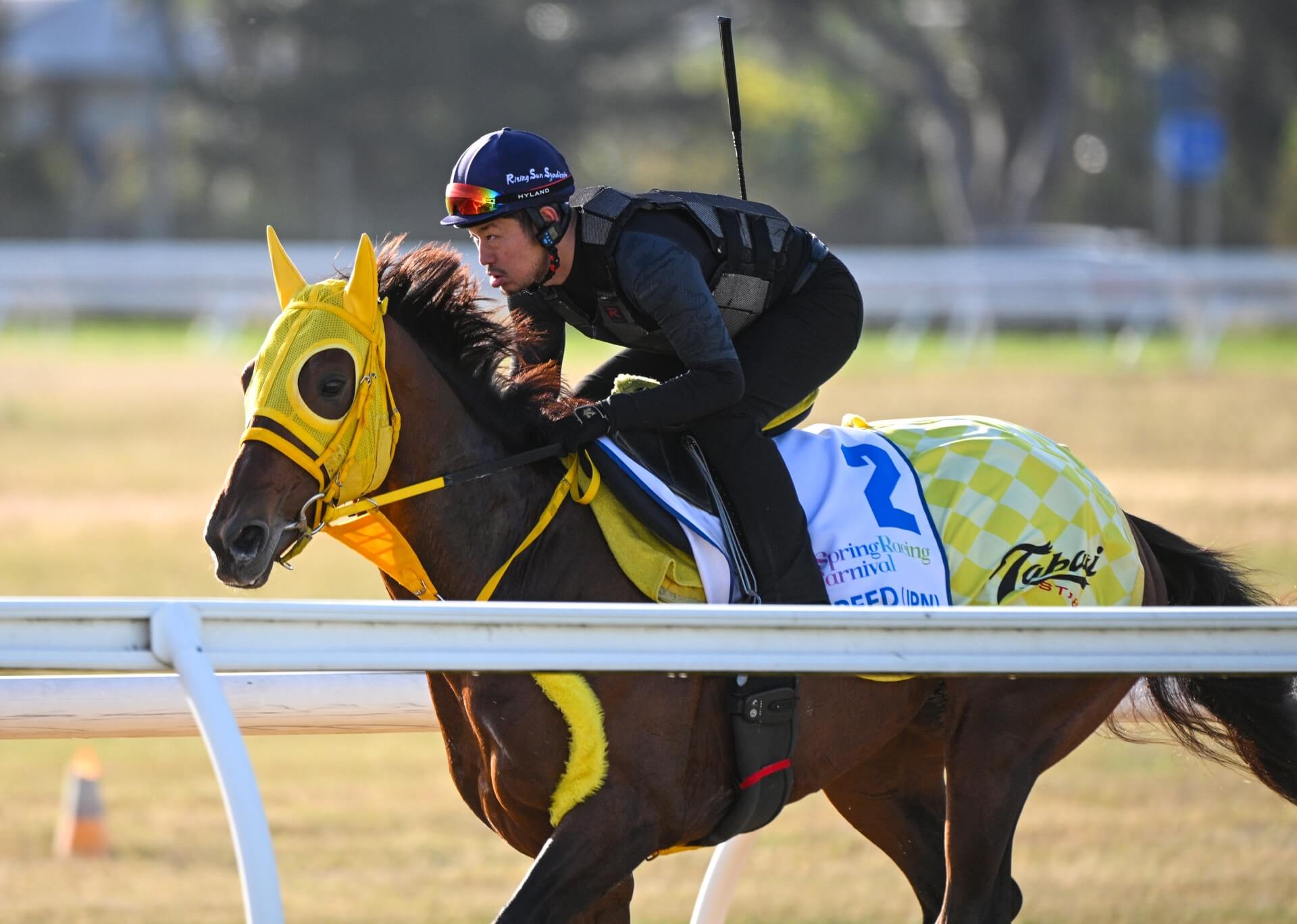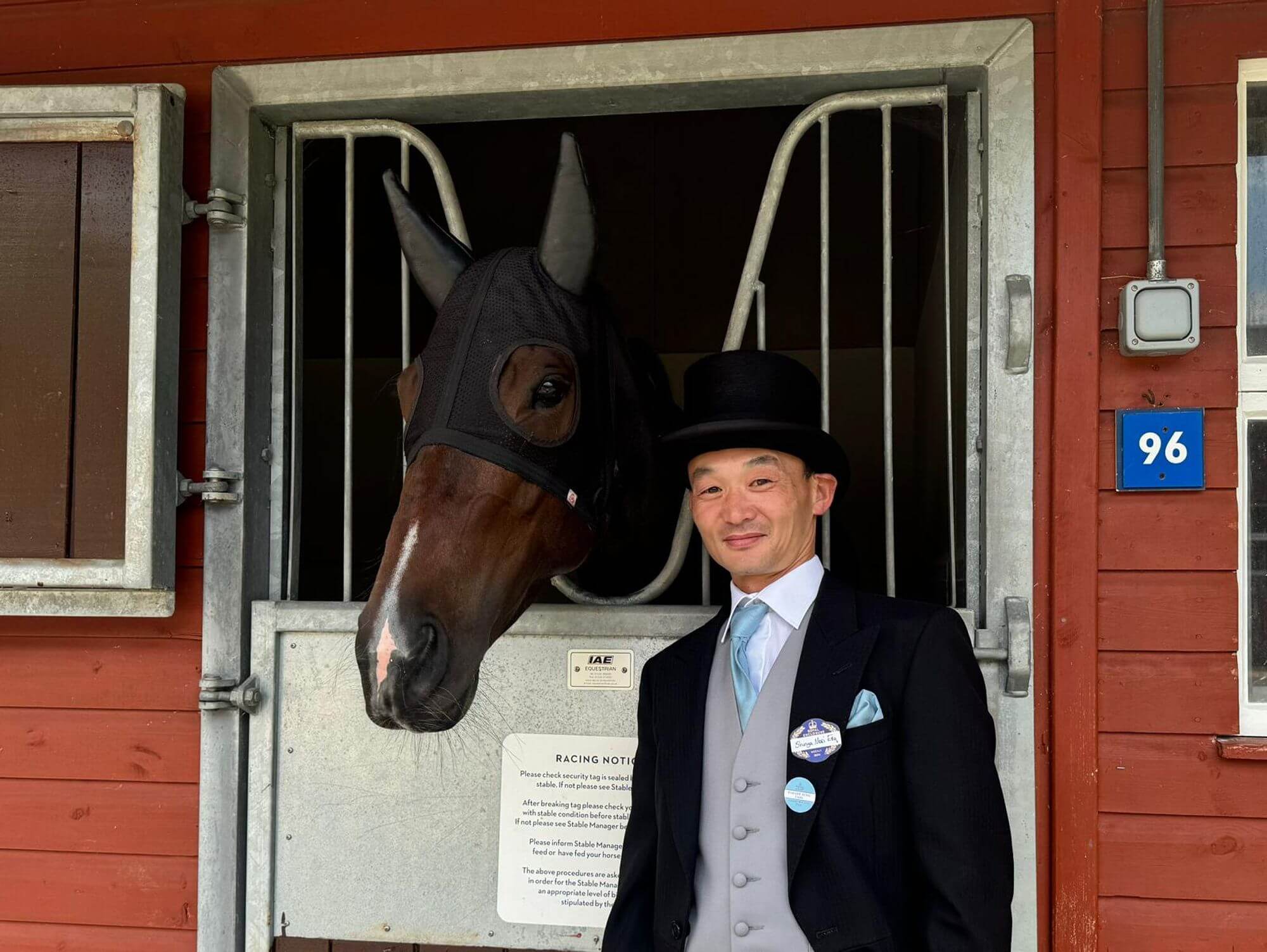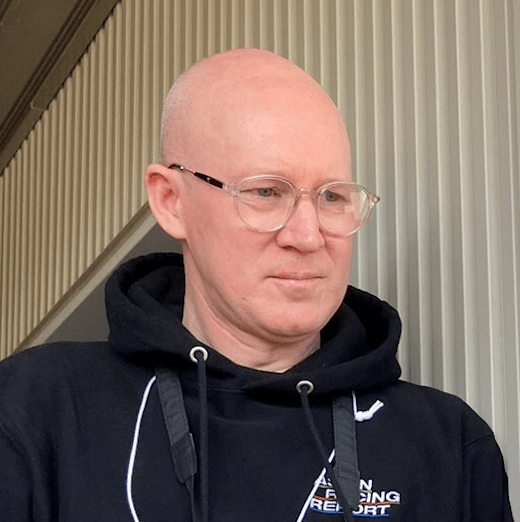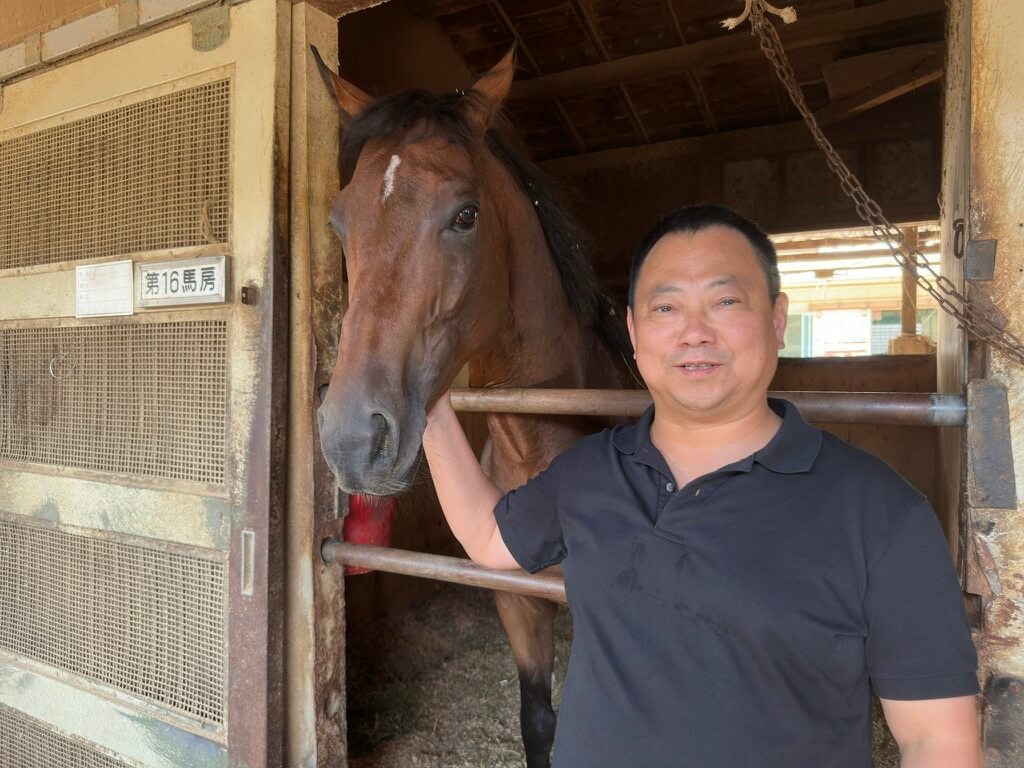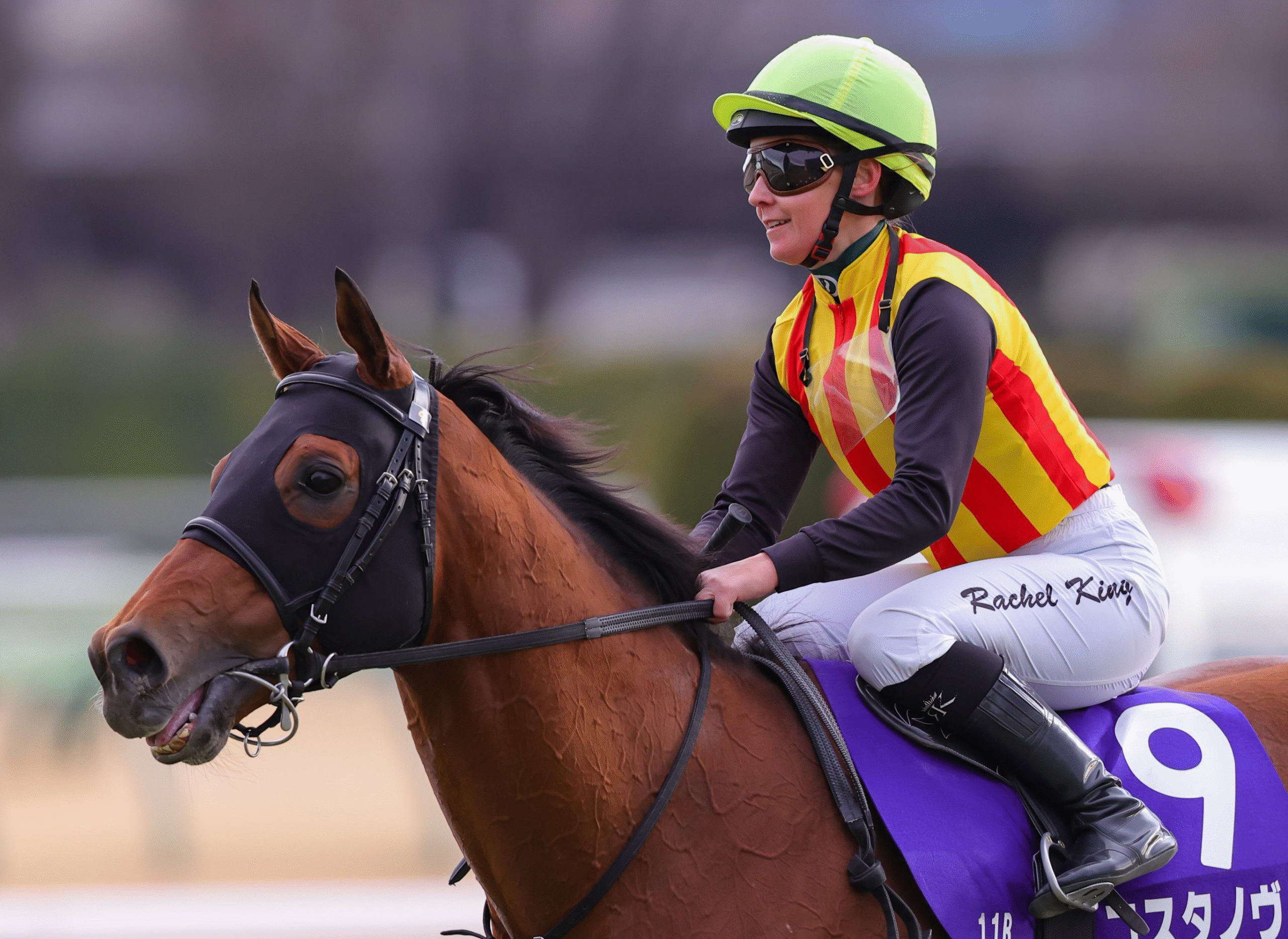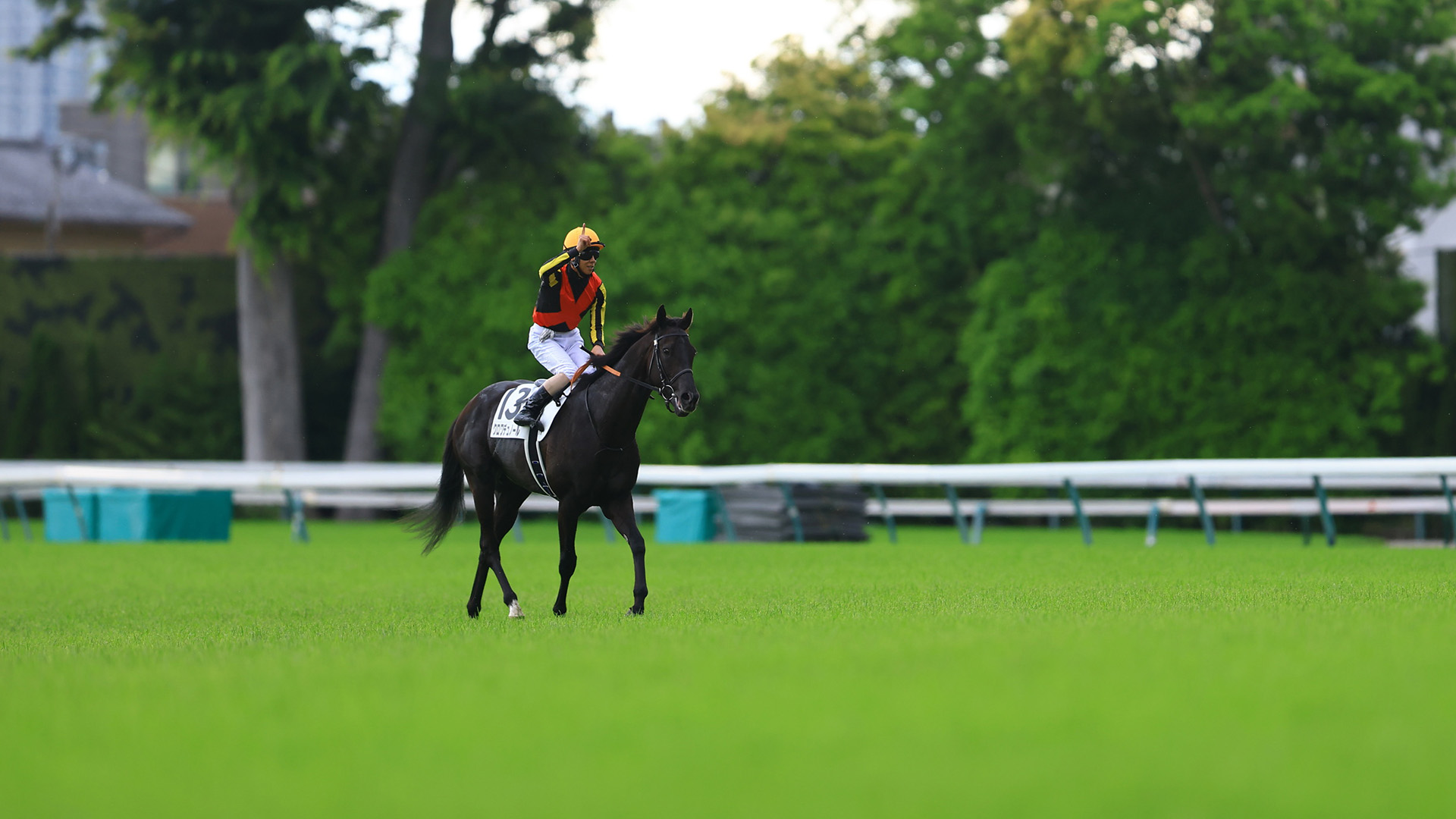You won’t find Kosi Kawakami front and centre when Japanese runners step out at Caulfield, Moonee Valley and Flemington for their upcoming Group 1 tests, but he is the essential cog that helps the wheel of Japan’s raiding machine turn smoothly during the Australian spring, and it’s been that way for 10 years now.
“I’m like a coordinator or racing manager, or whatever you want to call it,” he says with unconscious understatement and in easy, flowing English.
“I also actually ride work sometimes,” he adds when pushed for more details, and then offers, “I’m just doing the management here for them, arranging the vets and farriers, acceptance for races, and all sorts of things because I have the language skills they need.”
Kawakami is qualified as a Japanese-English interpreter from RMIT University in Melbourne and his language proficiency plus his familiarity with Australian racing, and the connections he has made, come from 23 years living in his adopted home. He left Japan at 18 to make his way in the racing business and fulfilled his dream as a Lindsay Park trackwork rider and as a jump jockey, riding in features like Warrnambool’s Grand Annual, the old Australian Grand National Steeple, and the discontinued Great Eastern Steeplechase at Oakbank.
Those jump jockey days are behind him, ended by a serious injury five years ago that necessitated a change of direction. His time nowadays is spent assisting his countrymen when they send horses down for the Australian majors, and in running his Rising Sun Syndicate operation. But, for these few weeks, his duties have him in the saddle atop the Japanese stayer Warp Speed, guiding the G1 Caulfield Cup and G1 Melbourne Cup hope at the Werribee quarantine facility, a commutable drive from his Melbourne home.

“Warp Speed’s going great, he’s just an amazing stayer,” Kawakami says. “I don’t think he has much of a turn-of-foot, but he’s got really good stamina and I’m surprised at how he’s got such a really good recovery from his work. After the gallop, by the time you pull him up at a canter or a walk, he’s not blowing at all, he just has amazing heart and lungs, so I think he would stay all day.”
Warp Speed is a five-year-old stayer, trained by Noboru Takagi who is best known for winning the G1 Dubai World Cup with the dirt track star Ushba Tesoro. The bay is a three-time winner at the Caulfield Cup distance of 2400m, but his best form is at around two miles and he was last seen in late April as a running-on fifth in the G1 Tenno Sho Spring behind T O Royal.
“He’s in good nick, I reckon he’ll be a really good chance for the Melbourne Cup, and, you never know, in a Caulfield Cup, too, it’s a testing mile and a half race,” Kawakami adds.
Kawakami has also been contracted to help with the coordination of Prognosis’ attempt at the G1 Cox Plate, with that horse’s trainer, Mitsumasa Nakauchida, seeking a first overseas Group 1 success. He does not ride Prognosis, though, Nakauchida has sent his own work rider along with the six-year-old’s groom.
“Prognosis is going great, he had a really good gallop (last Thursday) morning on the grass. He galloped super, he was under a strong hold and ran the last two in 22 seconds, he was smoking, he’s going great,” says Kawakami, who was paired with Warp Speed in the gallop.
“I had to ride Warp Speed out but he then kept up with Prognosis running the last two furlongs in 22 seconds, so they’re both going really good. Hopefully both horses can take some trophies back to Japan.”
Kawakami was first involved in assisting the Japanese raiders in 2014 when he was called upon by the connections of Admire Rakti, winner of the Caulfield Cup that year before a sadly fatal attempt at the Melbourne Cup.
“I helped Fame Game in 2015 as well, then Curren Mirotic in 2016,” he says. “One year I didn’t because they had their own guy, then I helped out with Lys Gracieux and Mer de Glace, and Breakup last year, so the majority of horses that come to Melbourne, I usually do it, and I go to Sydney as well sometimes. When Mr Yahagi brought Unicorn Lion and Ho O Amazon, I went there to Sydney to look after them and I also rode work.
“Most times the Japanese have come, I’m usually the guy to do it. I’m heavily involved, I usually go out there every morning to Werribee, and if anything happens, I’m there to translate and interpret.”

He was slated to ride Mer De Glace in its work before that horse’s Caulfield Cup win under Damian Lane in 2019, but that trackwork association was prevented by the crashing mishap that ended his jump jockey career.
“I injured myself in trackwork, funnily enough,” Kawakami says. “I was riding a baby and I smashed my pelvis to pieces, I was in a wheelchair for a while and I couldn’t ride for a few years so I gave up my licence, but at the same time I started this company: I always wanted to do something like this so it was a good transition, I guess.”
Rising Sun Syndicate is a business that also involves fellow Japanese expatriates, former jockey Yusuke Ichikawa and Shinya Mori, best known as the trackwork rider for this year’s Australian Royal Ascot heroine Asfoora.
“It’s going OK,” Kawakami says. “It’s a hard business to maintain, there’s not much room for a syndicator to make money. We’re building it up and we’ve got a bit over 20 horses to manage. We’re having winners, we haven’t had a big winner yet but our strike rate is more than 20 percent, so we’re keeping our owners happy. It’s a slow process to build it up but we’re proud of our strike rate.”
Rising Sun is active in the Australian market, buying inexpensive yearlings “in the 20 to 80 grand range,” but more interestingly, it buys out of Japan, tapping into the JRA (Japan Racing Association) system which requires any horse without a maiden win by the end of its three-year-old season to be moved on out of the circuit.
“We don’t have the funds to buy top notch Japanese horses, they’re very expensive, of course,” Kawakami explains. “The maiden races stop there in September and then many horses come onto the market, so we buy horses with upside, that had maybe been unlucky or had needed time and couldn’t win a maiden.
“The horse has to be tough, and it’s usually a horse for middle-distance or staying races because that’s where Australia hasn’t got too much depth. We buy those horses cheap, then of course transport costs are ridiculously expensive, but we still find that there’s value to it, and it’s gone well actually.”
Kawakami is able to use the connections he and his team have established with Japanese horsemen to do plenty of ‘due diligence’ on the horses Rising Sun buys out of Japan.
“When we pick out the horses and we’re interested, we ask around and always ask our contacts if they can connect me to the groom who has been looking after the horse, or the rider who has been riding the horse, or the jockeys of course, so I can get real information about the horse. When we buy a horse we can be really confident and that makes a huge difference,” he says.


Kawakami’s love of horses was born of a boyhood family holiday in Japan’s countryside, during which he did western-style riding “like cowboy stuff” and he was smitten with the idea of working with horses.
“I don’t have a proper equestrian riding background, it was horseback riding and a bit of bush riding, those kinds of things is where I started,” he says.
His father was a writer, scripting narrations for TV programmes, but both his parents supported his decision to go to Australia to follow his dream.
“My parents were not typical Japanese, they were happy to support me doing whatever I wanted to do,” he says. “I don’t think my mum was too happy when I was riding over jumps, I broke a dozen bones and every time I broke a bone, mama wasn’t happy; I understand now, I have my own children and I don’t want my kids to become a jump jockey! I know how she felt now.
“They always supported me chasing my dream and my life in Australia, which has been a really great journey.”
That journey is still in its early phase for Rising Sun Syndicate but he hopes the horses they introduce from Japan to the tough Victoria racing system will live up to the reputation of quality bloodstock established by the elite Japanese raiders.
Kawakami is hoping for further success when Warp Speed and Prognosis take on their own elite assignments, starting with the former in the Caulfield Cup. But win or lose, and whether the spotlight falls on him or not, he’s content with his life around horses.
“I just love what I do at the moment,” he says ∎
